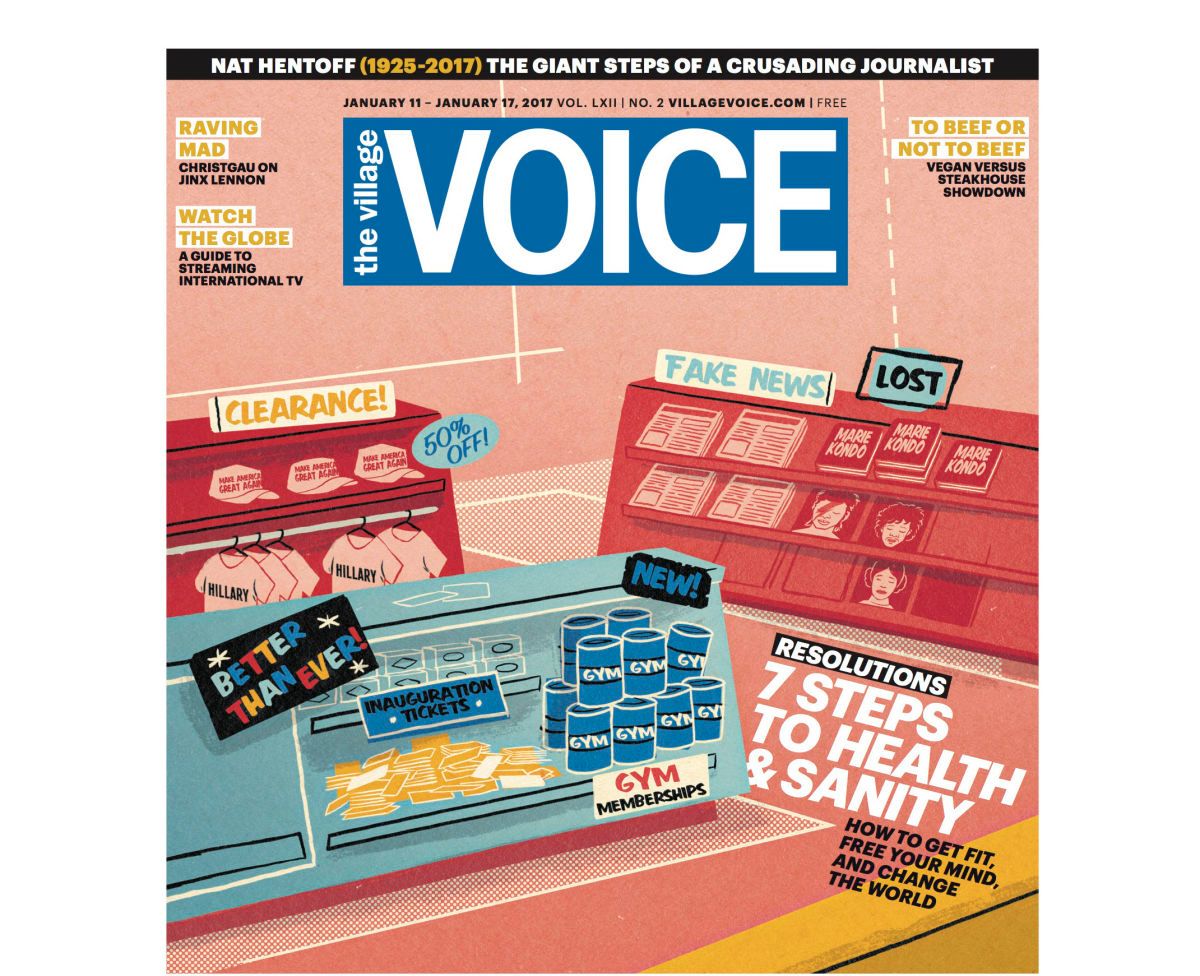

I don’t want to speak for him, but a lot of people had come in with the idea to turn the Voice into something else, like a digital marketing company. I got in touch with Barbey during the summer - I have a photographic memory, and I’m pretty sure I was in the car with my ex-boyfriend in June when we connected.īarbey told the New York Times that other people had approached him, but he thought you had the “best philosophy.” What is that philosophy? When did you first make that call to talk about buying the Voice? If I don’t agree with a piece of content, as long as it’s well written and thoughtful and not name-calling, then I just think, “Oh, that’s cool, I learned something.” For me, it’s never been about steering the content in a particular way. I realized after 10 months that I wasn’t able to do that.ĭo you think your personal politics are in conflict with running historically left-leaning alt-weeklies? An opportunity came up with the think tank, and I thought, maybe I can move the needle in that direction. At that time in my intellectual progression I was like, “I think I can fix the Republican Party.” If the Republican Party was conservative on taxation and economics but was progressive on social issues, then it would be in my mind a better situation. So I am now “decline to state,” and I have been for many years.Īnd it’s so funny because, people are always like, “Oh, the Claremont Institute!” I was 26 years old and it was a 10-month stint. I was an independent and then for a brief period of a few years turned to Republican and then I was like, I can’t do this either. No, my grandfather was a union Democrat and worked in a bakery. You’re not a Trump supporter but you were a conservative commentator at the Register, and worked at the Claremont Institute. I read a story saying I was a white heterosexual Trump supporter from Orange County - I’m half-white, I’m not heterosexual, I didn’t support Trump and I wasn’t born in Orange County. If you read stuff about me online, it would be very hard to piece that together. I was born in Whittier, and then we moved to Chino, out in the Inland Empire.
#VILLAGE VOICE ITS VILLAGE VOICEY FULL#
When we weren’t living with my grandmother, my mom was on welfare and food stamps for a time, and she ended up working three jobs, and I went to community college, as the first person in my family to go to college, and then transferred to USC, and then because I performed pretty well on the speech and debate team at both Mount SAC and USC I got offered essentially a full ride to grad school at Cal State L.A.ĭid you spend your whole childhood in Southern California? Everyone thinks I’m this super-rich billionaire that had a silver spoon in my mouth and magically went to USC, but no, I grew up super poor. You lived with your grandmother growing up?įor a time, yeah. So I grew up in a household with a very, very New Yorker grandmother.

My grandmother’s from New York, God rest her soul. It’s just one of those things where I was like, wow, mind blown. So that is a place that I’ve gone to a few times when I was in New York. I don’t think a trip goes by that I don’t go to La Esquina.Īnd then also, for entertainment there’s this kind of alternative show, a cabaret theater kind of situation, but very, very alternative, called the Box, which is super crazy and off the wall and just really different. It’s like this hole-in-the-wall taco stand and Mexican restaurant, literally on a corner, but then there’s also a downstairs speakeasy situation that’s also a restaurant that serves Mexican food and has a really cool bar. I can tell you one of my favorite places, which I don’t even know if I should tell you because it’s kind of embarrassing, but one of my favorite restaurants is called La Esquina, which in Spanish means the - you know, I speak Spanish - it means the corner. There was always something funny and sassy, like Michael Musto’s column - my favorite - and then good information about what to do, where to go, what was hip.ĭo you have any favorite parts of New York City? Places to go? Restaurants? And you know, on trips to New York, I would always pick up the Village Voice. So I just called Peter Barbey.ĭid you have a personal connection to the Voice before buying it? The Voice is probably more important than ever. Besides its reputation for hard-hitting investigative journalism - which is going to be needed in the aftermath of COVID - people are going to want to go out, whether it’s to concerts or festivals or nightlife or food or art or the theater. But I thought, the Village Voice is going to be super important when things start to go back online. Not taking anything away from L.A., which I think is the purveyor of culture in the country. I kept going back in my head to New York, because in many ways New York is America’s city.


 0 kommentar(er)
0 kommentar(er)
